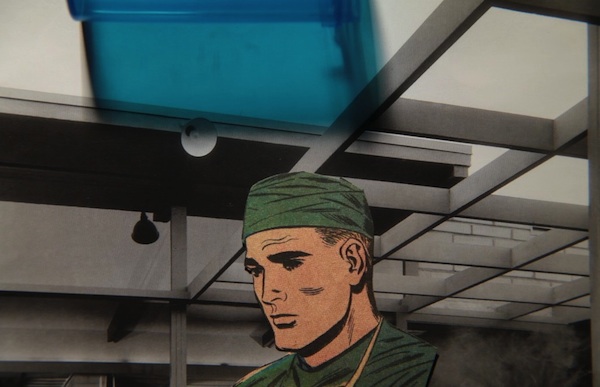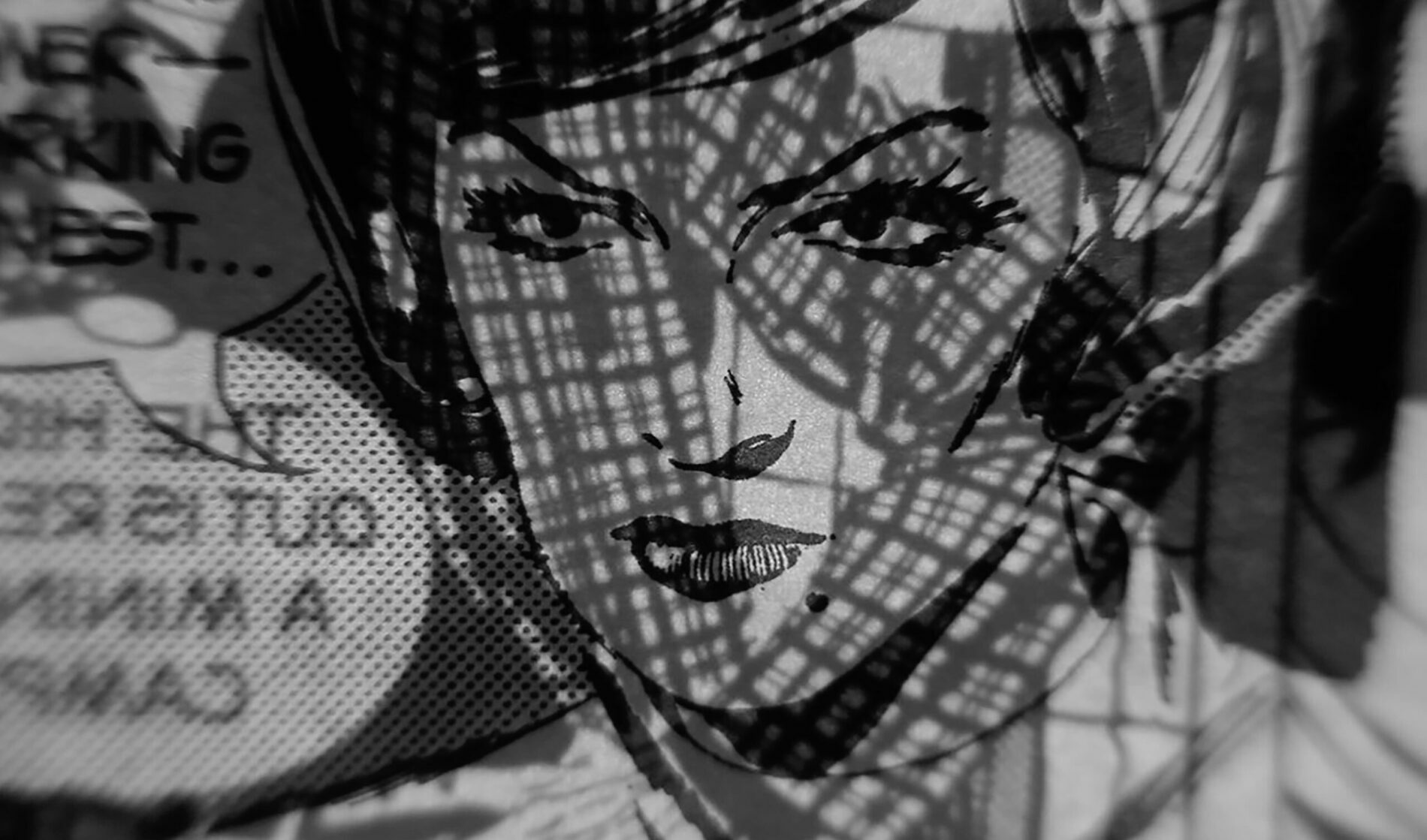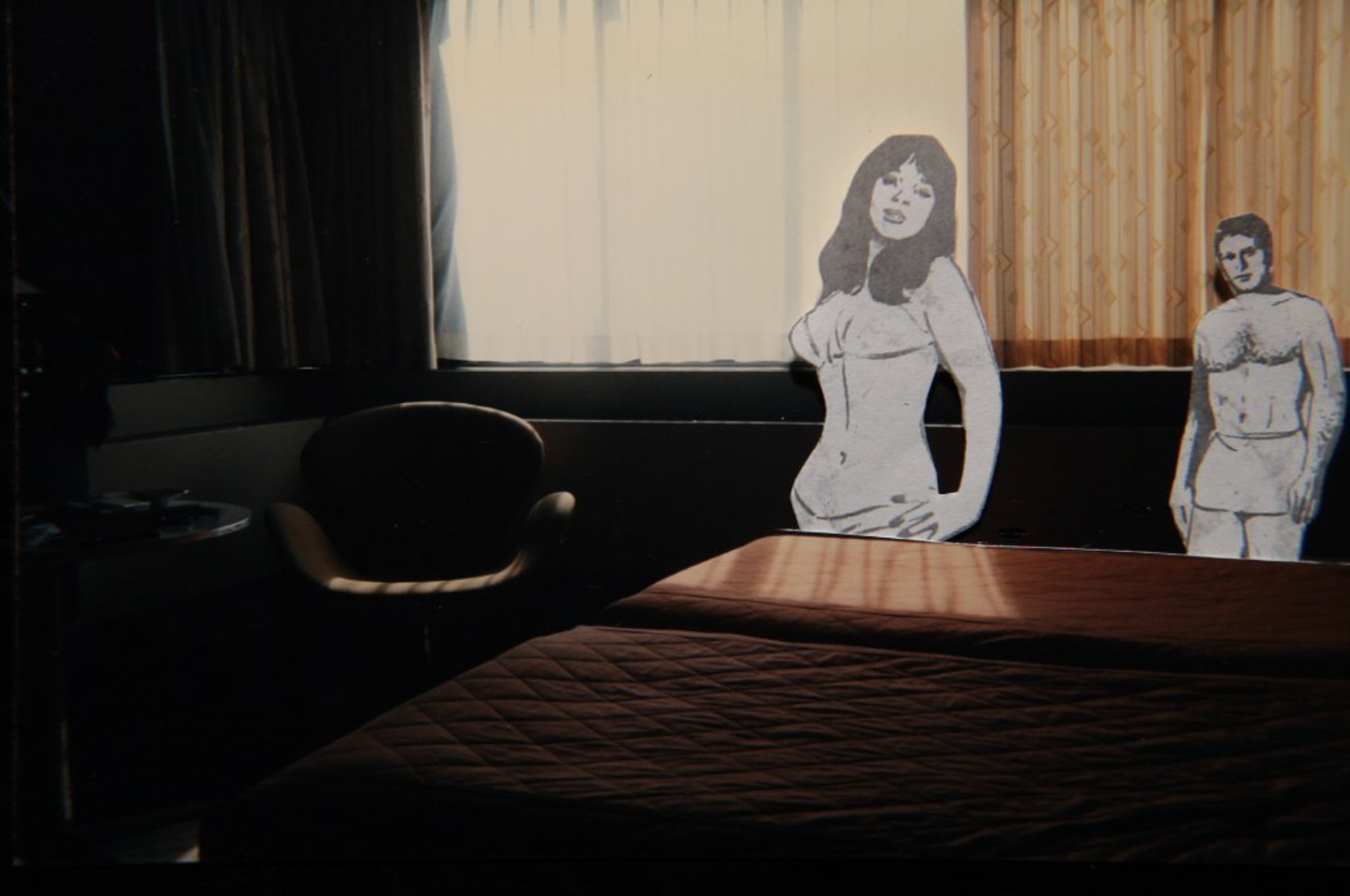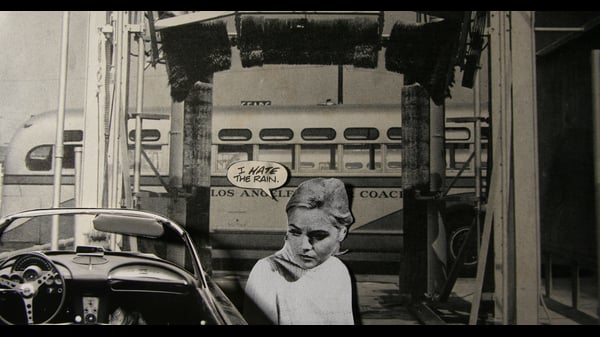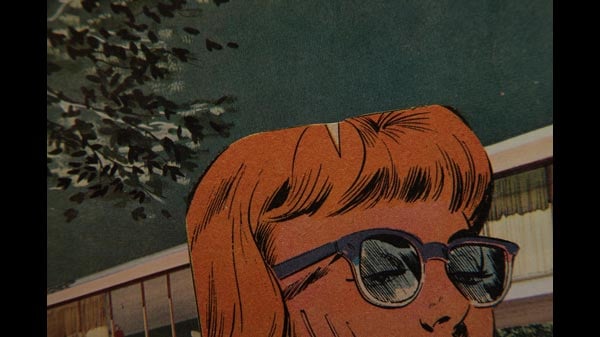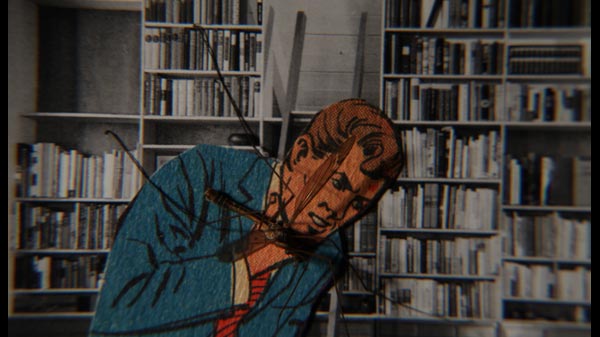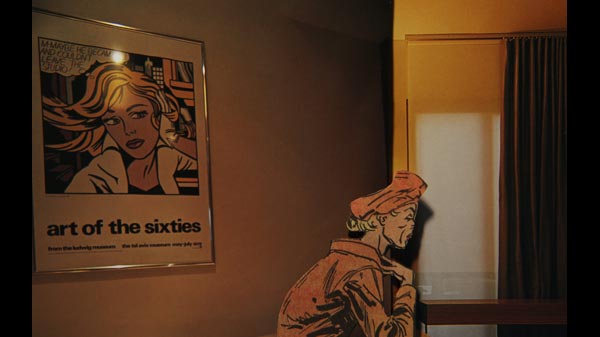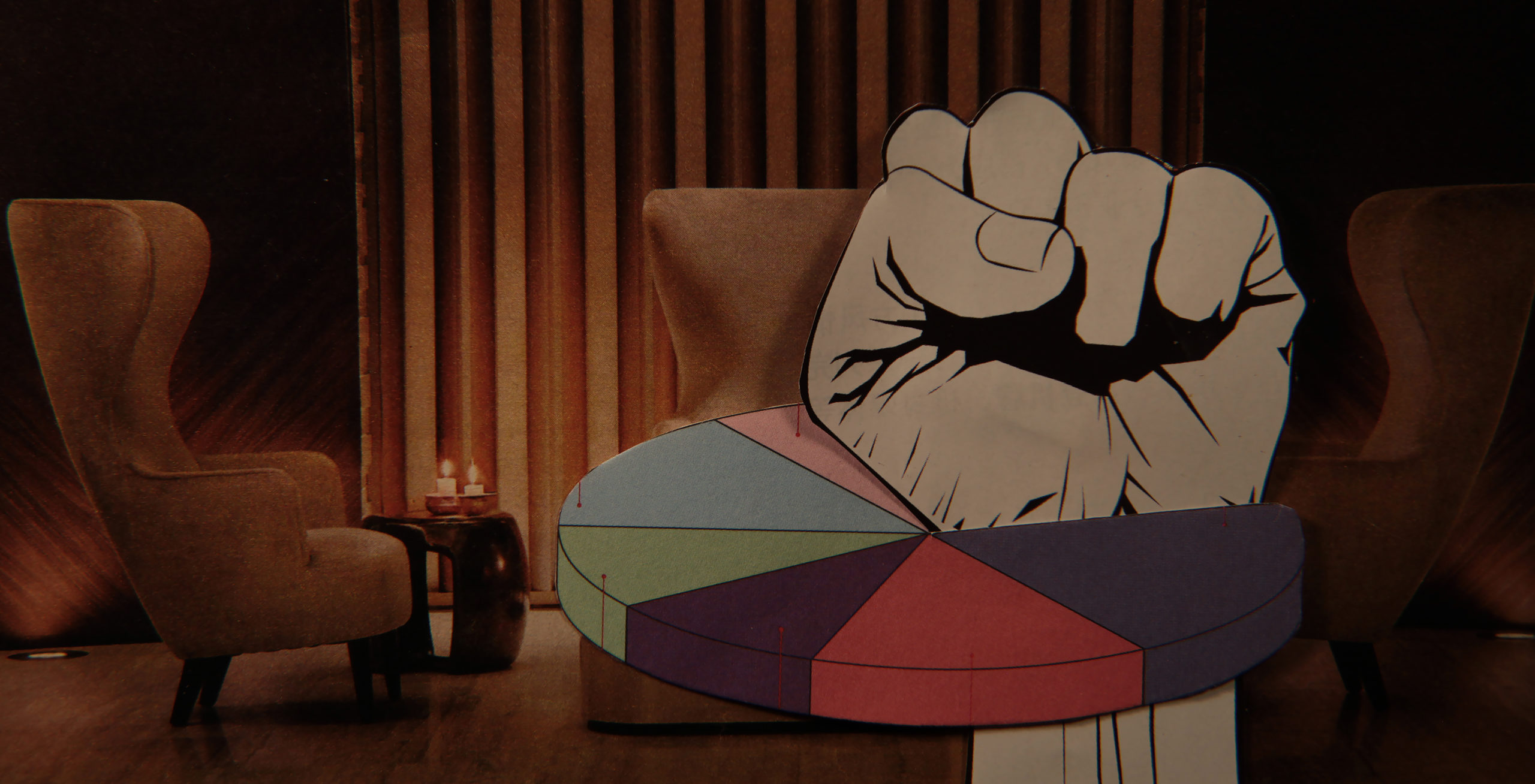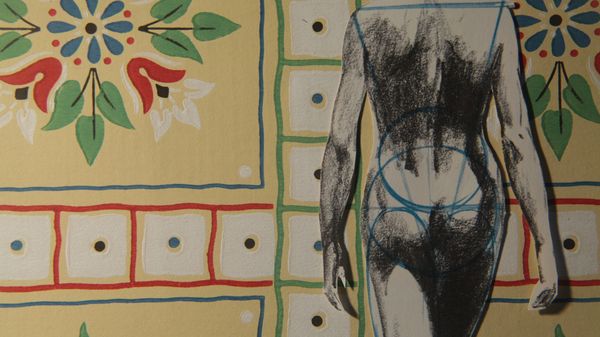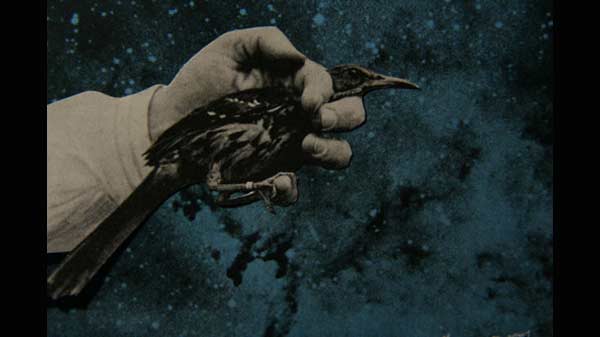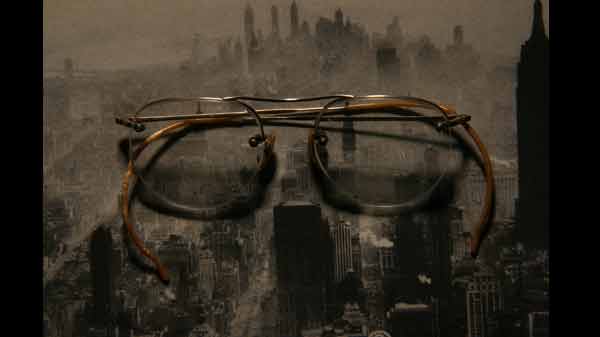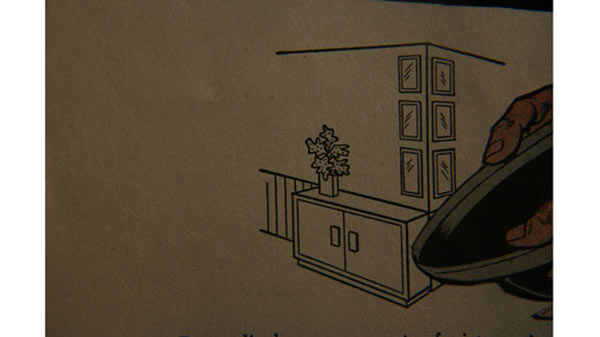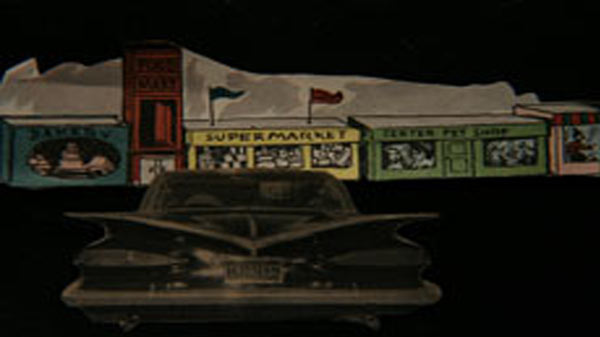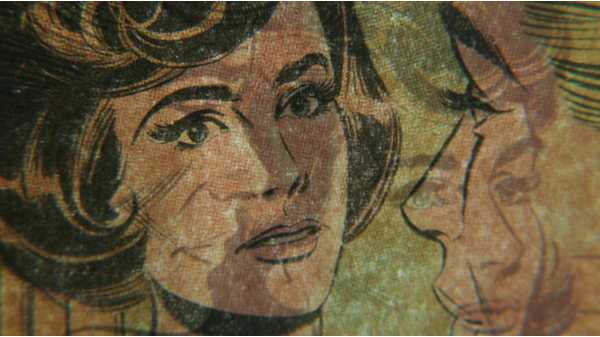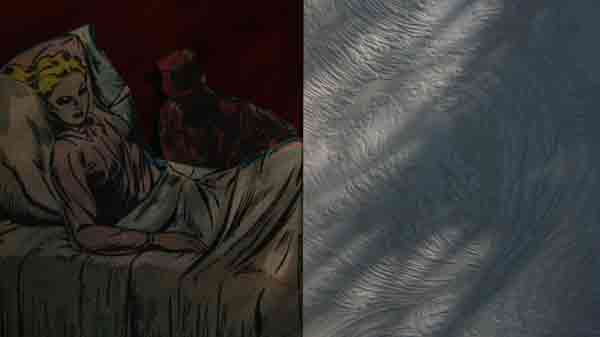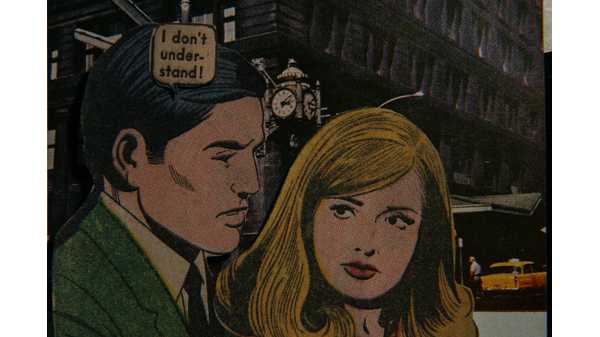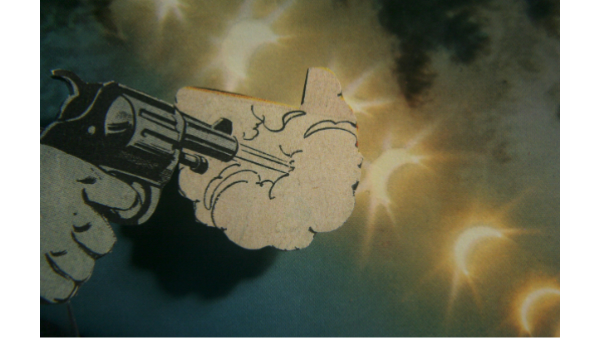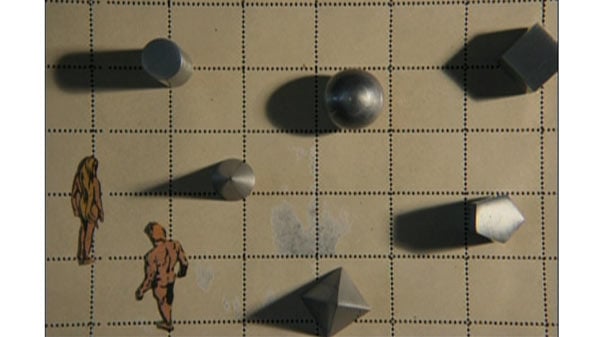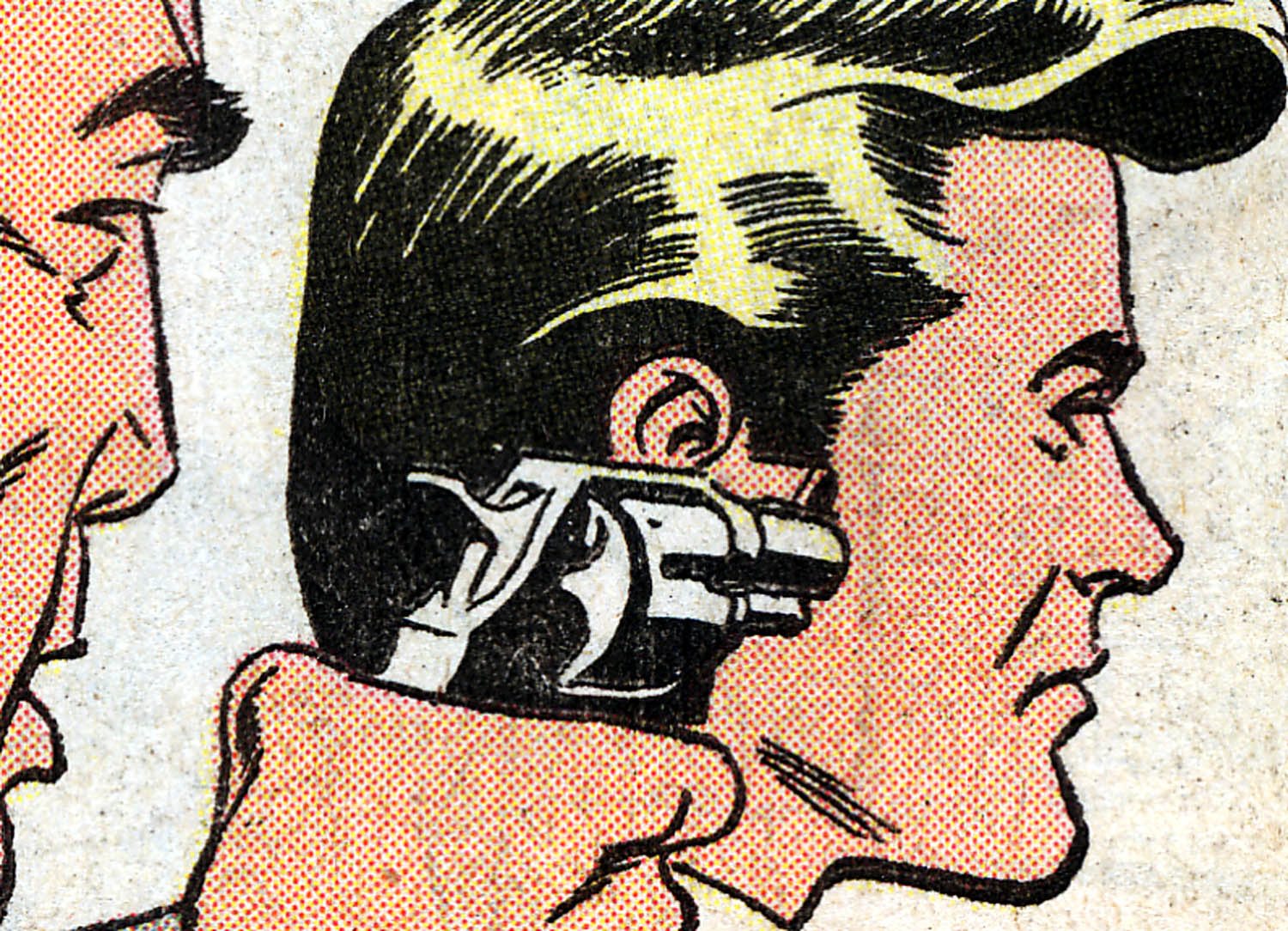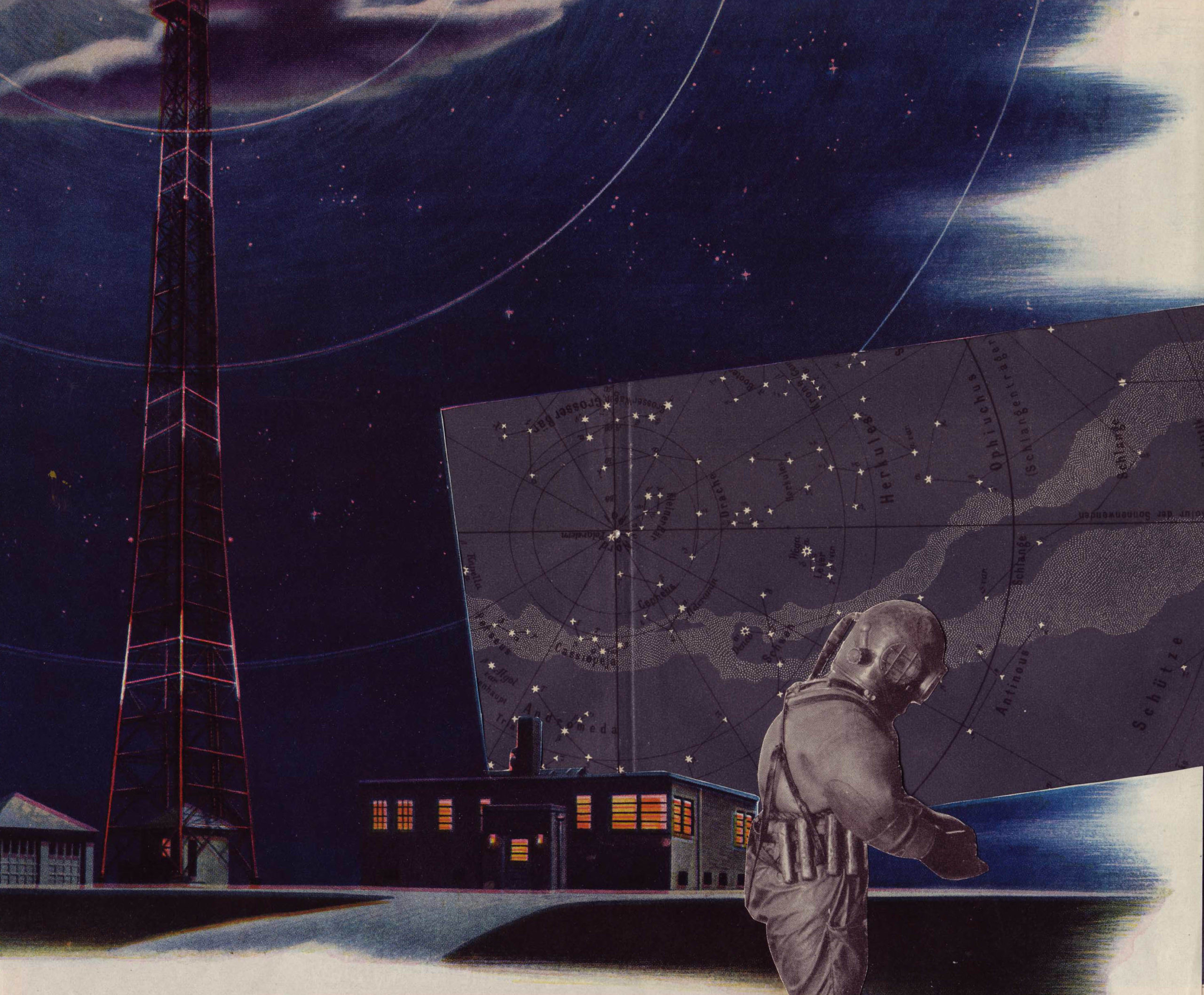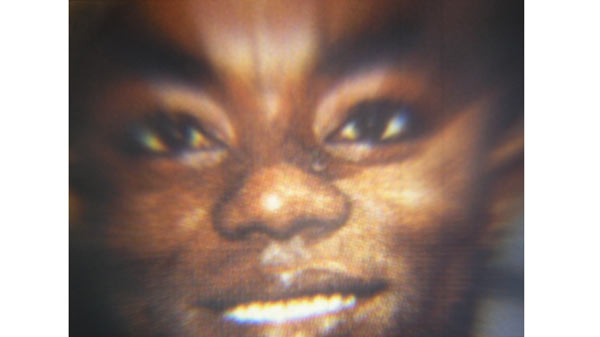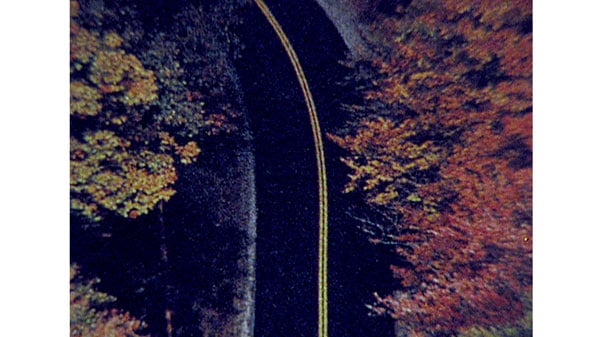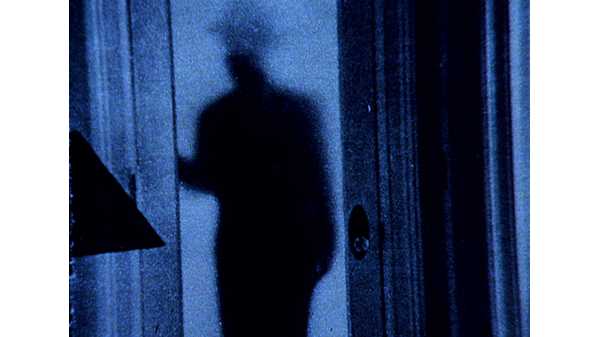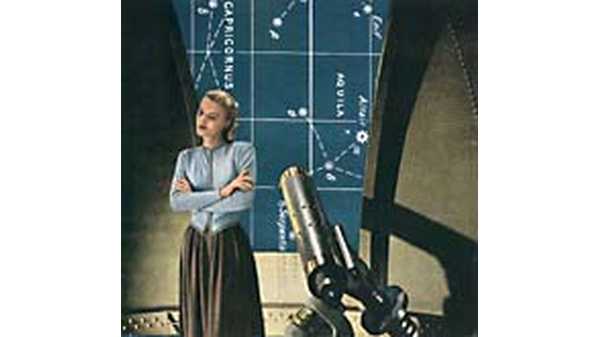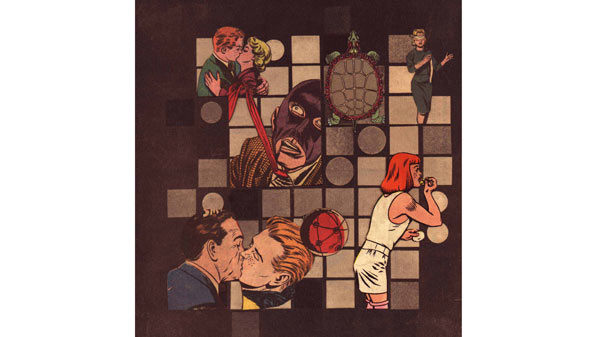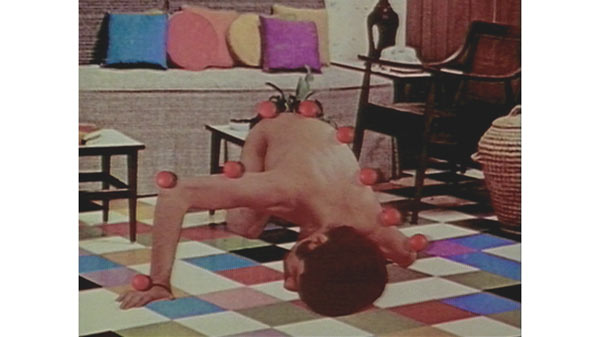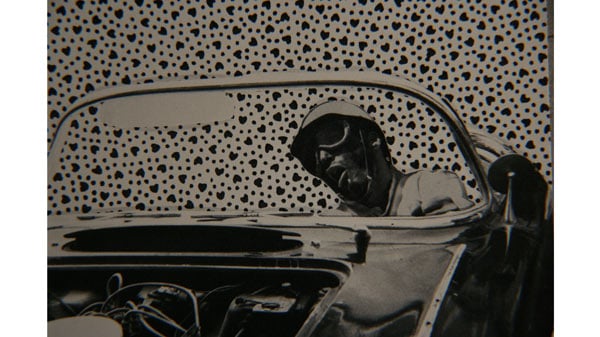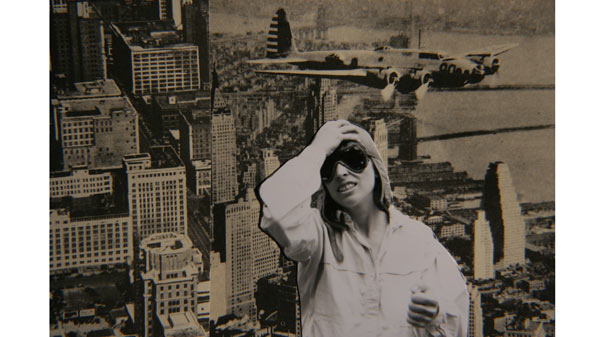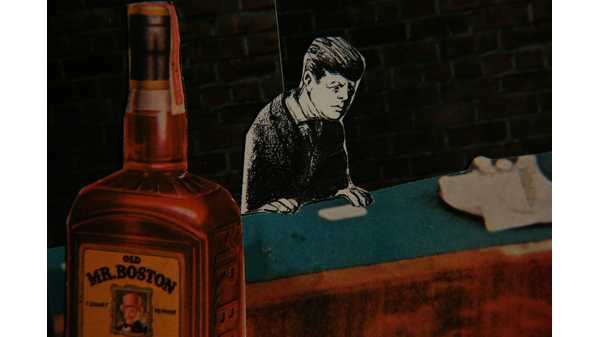Let the dreams you have forgotten equal the value of what you do not know.” –Andre Breton and Paul Eluard, “The Original Judgement”
Sixty Six began as a three minute, 16mm film I created in 2002– a pop poetic filled with the lush palette of Daylight Noir and primary color abstraction. For some undefined reason, I never took this little conjuring to the printing stage but would instead occasionally screen it publically as tape-spliced workprint. In June of 2012, I felt compelled to finally complete this short. I decided to re-create it, shot for shot, in digital video, which in the intervening decade had replaced 16mm as my format of choice. But a surprising thing happened as I transposed some of the original shots into video, the piece kept expanding as new images and materials spontaneouly folded in.
Sixty Six kept growing throughout 2013 until it was clear to me that I was creating a 12 episode series. My 2009 film “Lethe”, became the concluding and climactic film of the series, as it had pioneered the mythopoetic splice of 1960’s imagery with Greek Mythology that came to define Sixty Six as a whole. Unlike my previous work in series, I was thinking of many of the invididual films more as chapters than stand alones. Also many had shorter durations (2-5 minutes) than I usually worked in. As the overall structure defined itself, so did the tonal range, which includes a diverse variety of approaches. It’s a pop associational mindscape where texture and eternal time are the favored intoxicants as vividly colored 60’s comic book figures thread their way through iconic photographic settings that are often B&W and often of mid twentieth century Los Angeles.
Below some notes on the individual films:
Sixty SixProjection Order
1.Episode 11, Mercury (3m 2015)In Mercury I worked with a lightbox to illuminate the superimpositions created by the doublesided pages of mid 1960’s Flash superhero comics. Included are both the iconically red suited Flash and the Golden Age Flash as depicted in this Silver Age book. The latter looks more like classic representations of Mercury found in Greek Mythology. Mercury, as the messenger god, sets the series in motion.
2.Episode One, Ichor (5m 2013) Original music Mark Anthony Thompson, Narration Andrea LeblancIchor introduces the mid 1960’s Los Angeles myth-scape, the utopic foundation of the entire series. Greek Myth poetically collides with daylight noir. The word ‘ichor’ refers to the blood of the gods.
3.Episode Three, Helen of T (7m, 2013)A couplet. In the first half of Helen of T, a party girl roams NYC in her youthful prime. In its second half, Helen inhabits a contemporary landscape as she significantly ages. The music remains the same in both parts implying a truth about aging and the pastness of ones present. This is decidedly not the ‘Helen’ who had a war fought over her, but more Helen of Troy, New York.
4.Episode 4, Erigone’s Daughter (15m 2014) Original music Josh Rosen, an excerpt from “Bullettrain” performed by 3 Play. Erigone’s Daughter’s blond female protagonist is an assemblage of several different 1970’s Portuguese Foto Roman characters. Its soundtrack was collaged from the early 1960’s American TV show Route 66. The sound montage results in a mother and daughter tale of B-girl generational inheritance.
5.Episode Five, Mars Garden (5m 2014)Another exploration of the superimpositions produced by the doublesided comic book page– more superheroes, this time the obscure and short lived, Thunder Agents. Mars Garden explores the limits and sense of sacrifice embodied in the myth of the male hero.
6.Episode 6, Saturn’s Diary (6:45 2014)Saturn’s Diary is just that– a diary of the God’s mundane, earthly existence, including his busy romantic life, during the first 4 months of 1966. Here the comic book noir characters and L.A. landscape of Ichor re-emerge. In the film’s final section, as representation is replaced by the abstraction of silence and pure color flicker, Saturn disappears, and the film transforms into a color diary.
7.Episode Ten, The Silver Age (9m 2015)The Silver Age is a climactic chapter of the thread of imagery begun in Ichor and continued in Saturn’s Diary. The L.A. landscape is again lush with color figures and objects juxtaposed for maximum contrast against the B&W splendor of iconic L.A. architectural photographs. The previously repressed sense of crime running throughout this thread, now explodes into full metaphoric view via recurring shots of burglarized safes and the appearance of a raised revolver. But the pop graphics and backwards love songs on the soundtrack complicate the mix implying the larceny committed is not only of the pocketbook. Likewise, one would be mistaken to think that that pensive, melancholy surgical team (whose gowns evoke the spring greens in Erigone’s Daughter) are merely performing plastic surgery on faces and fingerprints.
8.Episode Eight, August 19, 1966 (Jupiter Sends A Message) (5m 2014)A remembrance of August 1966 in the suburban Long Island of my childhood. The crickets sing until the thunder claps inscanned landscapes– excerpted details from Life magazine photos where the enlarged printing grid dots makes the humidity of the approaching thunderstorm palpable.
9.Episode Nine, Lip Print (Venus) (3m 2012)A feature length melodrama compressed into 3 minutes, in which a quintessential 60’s blonde (an amalgam of several different romance comic protagonists) discovers who she’s really desiring. Set to a looped section of Debussy’s Clair de Lune this film was originally titled “Turn It Back” and was commissioned by Chuck Workman for his “What Is Cinema?” essay doc.
10. Episode Seven, Ambrosia (4:30 2014)The food of the gods– a filmic still life of 1960’s banquet tables. The only silent film in the series.
11.Episode Two, Orphacles (5m, 2013) Original music Mark Anthony Thompson, Narration Andrea LeblancOrphacles is a Greek mythological figure of my own invention. In the rip roaring finale, Orphacles becomes enraged while being overlaid with a newly dead, still twitching mosquito and Mark Anthony Thompson’s rave up guitar solo. Orphacles forms a bookend with Ichor as it includes more of the same iconic L.A. house-scapes, 60’s daylight noir comic book characters and narration of prophetic quotes (usually pessimistic) from the Book of Cartomancy.
12.Episode Twelve, Lethe (21:30 2010)The film I made in 2009 that inaugarated this mythopoetic series before I knew I was making it. A pulp, sci-fi melodrama edited to a score by Mahler. In Greek Myth, Lethe is the underworld river that the dead drink from to erase their memories of their recent life. The clearest elliptical story I’ve ever told. The type of storytelling I aspired to create when I first became a filmmaker in the late 1970’s– only took me 3 decades to get here!

